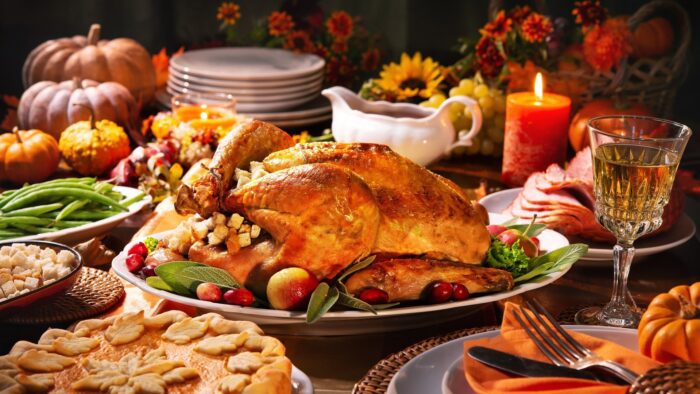
The holidays are a season of abundance—abundant joy, family gatherings, and, often, abundant food. While it’s wonderful to celebrate with festive meals, this time of year can also lead to unnecessary food waste. The good news? With a little planning and some smart storage tricks, you can reduce food waste, save money, and make the most of every ingredient.
1. Plan with Precision
Before heading to the store, take the time to plan your meal, factoring in how much your family and guests are likely to eat. By planning out what you need, you’ll reduce the chance of forgotten produce or unused items going to waste, making your holiday season both budget-friendly and sustainable.
2. Take Stock Before You Shop
Check your pantry, fridge, and freezer before creating your shopping list. You might already have items like spices, baking supplies, or frozen vegetables that can save you a trip and reduce clutter. You can also review Tennessee’s Food Waste Reduction Program. It provides excellent resources for reducing food waste at home. By inventorying what you have, you’ll save money and time by avoiding duplicate purchases. Plus, it helps reduce clutter in your kitchen, ensuring that everything gets used up before it expires, minimizing food waste.
3. Store Produce Like a Pro
Different fruits and vegetables need different storage environments to stay fresh longer. For example, bananas, avocados, and tomatoes should be stored on the counter until ripe and then moved to the fridge to slow further ripening. Leafy greens like spinach and lettuce stay crisp longer when wrapped in a paper towel, stored in a breathable bag and kept in a crisper drawer. Carrots and celery can be submerged in water and kept cold to maintain their crunch. Storing produce properly will help reduce spoilage and ensure you get the most out of your groceries.
4. Freeze Leftovers ASAP
Don’t let those holiday leftovers sit in the fridge for days. Dividing leftovers into single-serving sizes and freezing them makes it convenient to reheat what you need later, reducing waste and saving time. Be sure to label each container with the contents and date so you can easily track what’s in your freezer and enjoy your holiday dishes long after the celebrations have ended. Properly stored leftovers can be delicious, stress-free meals down the road.
5. Rethink Your Serving Sizes
People love variety, but serving too much at once can lead to waste. Making smaller portions of each dish reduces leftovers and allows everyone to try a little of everything without overwhelming the table. This approach ensures that your guests enjoy the special foods that make the holiday memorable while reducing the likelihood of food being tossed out. Additionally, by offering smaller portions, you’re also saving money, as you’ll avoid buying or cooking more food than necessary.
6. Repurpose Scraps and Peels
Rather than tossing out vegetable peels, fruit cores, or leftover bits of meat, consider how they can be repurposed into something useful. Vegetable peels can be turned into homemade vegetable broth and leftover bones from roasted meats can be used to make rich, flavorful stocks for soups or sauces. Repurposing these scraps reduces waste and maximizes the value of the ingredients you’ve already purchased, making your meals more sustainable and cost-effective.
7. Compost Food Scraps
Not everything can be eaten, but much of it can still be useful. Instead of tossing items like vegetable peels, coffee grounds, and eggshells, set up a compost bin to enrich your soil in the spring. Even small spaces can fit a countertop compost container or a small outdoor bin. Turning food scraps into a sustainable resource helps contribute to a healthier environment while keeping unnecessary waste out of landfills.
8. Get Creative with Leftovers
Turn yesterday’s feast into something new. Roast turkey can shine in sandwiches, stir-fries, or comforting soups, while mashed potatoes transform beautifully into a hearty shepherd’s pie. Avoid meal fatigue and reduce food waste by exploring ‘leftover makeover’ recipes online tailored to your holiday staples. With a little creativity, leftovers can feel brand new and just as delicious.
9. Organize Your Pantry
Keeping your pantry neat can help you save time and money by making it easier to see what you already have. A well-organized pantry reduces food waste, as you’re less likely to overlook items that might expire soon. It also helps save money by preventing unnecessary purchases and ensuring you make the most of what you have. Keeping your pantry tidy regularly is a simple habit that pays off in the long run.
10. Share the Love
Have too much food? Share leftovers with neighbors or guests. You can even prepare take-home containers as a thoughtful touch after your holiday gatherings. If you have unopened, non-perishable items, consider donating them to local food banks or shelters, where they can be distributed to those in need. This not only helps reduce waste but also supports your community by ensuring that surplus food goes to a good cause rather than being discarded.
Reduce Food Waste and Celebrate Sustainably
These simple tips can help you enjoy the holidays and keep ood waste to a minimum. Not only will you save money and reduce waste, but you’ll also feel good knowing you’re making choices that benefit your household and the planet. When you minimize food waste, you help keep excess food out of trash cans and landfills, reducing the strain on waste management systems. Additionally, you’re helping protect wildlife by preventing discarded food from attracting animals to urban areas, keeping them safe from potential harm. Ultimately, you’re utilizing resources more efficiently, supporting a more sustainable lifestyle for you and your community.



